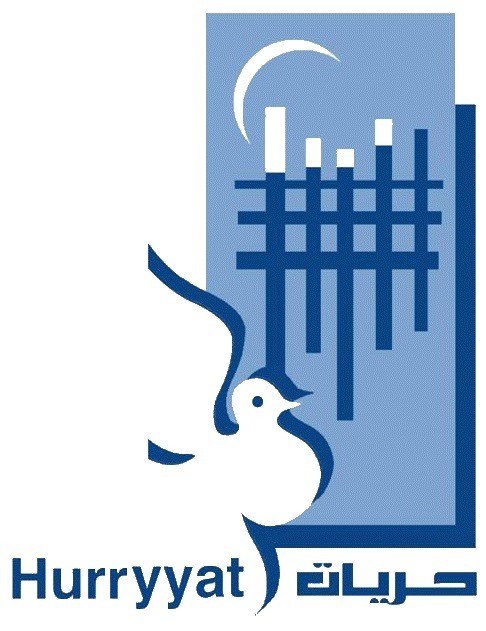Important Prisoners Statistics on Palestinian Prisoners’ Day April 17th 2015
On this glorious day, the day of the Palestinian prisoner, the birth of the prisoners’ movement and the symbol of their national struggle, the Center for Defense of Liberties and Civil Rights (Hurryyat) honors this occasion and celebrates the dignity and pride of the prisoners in their movement; a movement that has written an individualist and collective heroic history with its resistance and sacrifices towards freedom, liberty, and independence.
The Palestinian people have long preserved and celebrated this day over the past years as an occasion for recognizing the value of and admiration towards the conscience and sentiments of the prisoners’ movement. This day marks a renewal of our devotion to and solidarity with every prisoner that has sacrificed their own freedom for the freedom of their people. This day is a day for standing up to the violations committed against them as a means of liberating them from the shackles of prison.
This year the day comes midst a wave of accusations from the Israeli prison services and resolutions from the Israeli government that aim at crushing the acquired rights of prisoners, imposing collective punishment, applying the Penal Code of Israel, working on permitting and imposing capital punishment, authorizing the force feeding of hunger strikers, conducting arrests in large numbers including the re-arrest of 65 prisoners liberated by the Shalit Prison-swap deal, reimposing long or life imprisonment, and renouncing their obligations toward releasing the fourth group of pre-Oslo veteran Palestinian prisoners for using them as a card for negotiations and political blackmail.
Six thousand Palestinian prisoners are still dispersed among the several Israeli prisons of Glibo’a, Megiddo, Shata, Hadarim, HaSharon, Ofer, Eshel, Nafha, Negev (Ktsi’ot), Ramon, Ashkelon (Shikma), Ramla, in addition to other interrogation and detention centers. Amongst these prisoners are 24 female detainee the oldest of which is Lina Al-Jarbouni sentenced for 17 years. Sick prisoners have registered approximately 1000 patients suffering from various diseases; 200 suffer chronic diseases while 85 suffer critical health situations where 28 prisoners are diagnosed with cancer, 24 are partially paralyzed, and 6 are completely paralyzed. According to Hurryyat, the policy of deliberate medical negligence practiced since 1967 led to the death of 61 prisoners the latest being Jaafar Awad from Beit Ummar north of Hebron. Jaafar Awad, aged 22, developed severe pneumonia, diabetes, and other diseases upon his arrest and died three months after his early release in al-Mizan hospital in Hebron; an attempt of the occupation authorities and the Israeli prison service to wash their hands of his death. As for minor prisoners, the number of children in Israeli prisons has reached 200. Administrative detainees have approximately registered 480 noticing an increase since the last hunger strike on 14/04/2014, a strike that lasted 36 days. Following the arrest of Khalida Jarrar, the number of the Legislative Council members have reached 13 including: Marwan Barghouti sentenced to five life sentences, Ahmad Saadat Secretary General of the Popular Front for the Liberation of Palestine sentenced to 30 years, Aziz Dweik, Hassan Yousef, Mohammad Jamal Al-Natsheh, Husni Burini, Abdul Jaber Fuqaha, Mohammad Maher Bader, Azzam Salhab, Riyad Raddad, Khalil Rubi’i, and Wasfi Qabaha, the most of whom are under administrative detention.
In this occasion, Hurryyat invites the Palestinian people, the governmental and non-governmental organizations, the sectors, unions, and the political forces to conduct activities in solidarity with the prisoners to empower them, motivate them, alleviate the popular struggle, and reinforce their legal and political battle before the international community. This battle enables the prisoners to reaffirm their status as prisoners of war, address the crimes committed against them to the International Criminal Court, and demand the High Contracting Parties in the Geneva Conventions to abide by their obligations in protecting prisoners and detainees and ensuring the application of their declarations last December in prohibiting the (forcible) transfer of detainees and prisoners outside of occupied territory.

